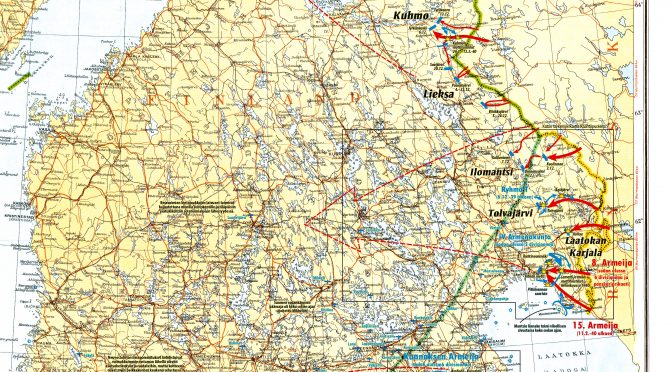SOCIALIST IDEOLOGY During the Finnish Liberation War (27 January – 15 May 1918) concerned the transition of leadership and the control of Finland during the transition from a Grand Duchy of the Russian Empire to an independent state of Finland.
UNION OF SOVIET SOCIALIST REPUBLICS SOCIALISM
In theory, the core ideology of socialism is when a population collectively owns and controls the means of production and distributes the result proportionally. The control delegated to the State. While the distribution usually comes in the form of underlying social welfare to satisfy everyone’s basic needs, like housing, education, and healthcare. The ideals end goal and purpose of socialism were to guarantee a level playing field for members of society, thereby removing class distinctions based on ownership.
In reality, it was like a one-sided coin. An ideology that was rooted in unbelief, lawlessness, and atheism. The founders resorted to rebellion, violence, and anarchy. Committing murder, for their godless political ends. USSR was a vile manifestation of the erroneous human carnal nature, heart, and mind corruption.
The only objective for the fruits of the sinful man and the Nemesis of humanity to manifest on earth.
THE RUSSIAN REVOLUTION TO COMMUNIST
Their ideology was delusional, and it was a purely materialistic worldview; it became defined as a Dialectic Materialism philosophy, not people-centered with spiritual values, but instead purely 100% materialistic worldview.
THE SOURCE OF KARL MARX CREED?
Karl Marx had a Jewish heritage, but he deliberately turned 180 degrees around from the
- Super naturalism
- Distinctiveness of his Jewish heritage to embrace
- Atheism and
- Communist ideology.
Marxism retains all the major structural and emotional factors of biblical religion in a secularized form. He is a false prophet in every sense of the word.
(Encyclopedia, Karl Marx, 2018)
MOSES.
“So remember that the Lord is the only true Elohim, whether in the sky above or on the earth below.” Deuteronomy 4: 39. (1446 BC)
KARL MARX DOCTRINE
”Marx, like Moses, is the prophet who leads the new Chosen People, the proletariat, out of the slavery of capitalism into the Promised Land of communism across the Red Sea of bloody worldwide revolution and through the wilderness of temporary, dedicated suffering
for the party, the new priesthood.”
“The revolution is the new “Day of Yahweh,” the Day of Judgment; The party spokesmen are the new prophets, and political purges within the party to maintain ideological purity are the new divine judgments on the waywardness of the Chosen and their leaders.
The messianic tone of communism makes it structurally and emotionally more like a religion than any other political system except fascism”. “Just as Marx took over the forms and the spirit of his religious heritage, but not the content, he did the same with his Hegelian philosophical heritage, transforming Hegel’s philosophy of “dialectical idealism” into “dialectical materialism!
Marx stood Hegel on his head,” the saying goes. Marx inherited seven radical ideas from Hegel:
Monism:
The idea that everything is one and that common sense’s distinction between matter and spirit is illusory. For Hegel, the matter was only a form of spirit; for Marx, the spirit was only a form of matter.
Pantheism:
The notion that the distinction between Creator and creature, the distinctively Jewish idea, is false. For Hegel, the world is made into an aspect of God (Hegel was a pantheist); for Marx, God reduced to the world (Marx was an atheist).
Historicism:
The idea that everything changes, even truth; that there is nothing above history to judge it; and that therefore what is right in one era becomes false in another, or vice versa. In other words, Time is God.
Dialectic:
The idea that history moves only by conflicts between opposing forces, a “thesis” vs. an “antithesis” evolving a “higher synthesis.” This applies to classes, nations, institutions, and ideas. The dialectic waltz plays on in history’s ballroom until the kingdom of God finally comes-which Hegel virtually identified with the Prussian State. Marx internationalized it to the worldwide communist State.
Necessitarianism, or fatalism:
The idea that the dialectic and its outcome are inevitable and necessary, not free. Marxism is a sort of Calvinistic predestination without a divine Predestinator.
Statism:
The idea that since there is no eternal, trans-historical truth or law, the State is supreme and uncriticizable. Marx again internationalized Hegel’s nationalism here.
Militarism:
The idea that since there is no universal natural or eternal law above states to judge and resolve differences between them, war is inevitable and necessary as long as there are states.”
(Kreeft, 2018) www.peterkreeft.com/ pillars_marx.
Victor Leinonen. A Claim For A True Worldview (Kindle Locations 1448-1458).

